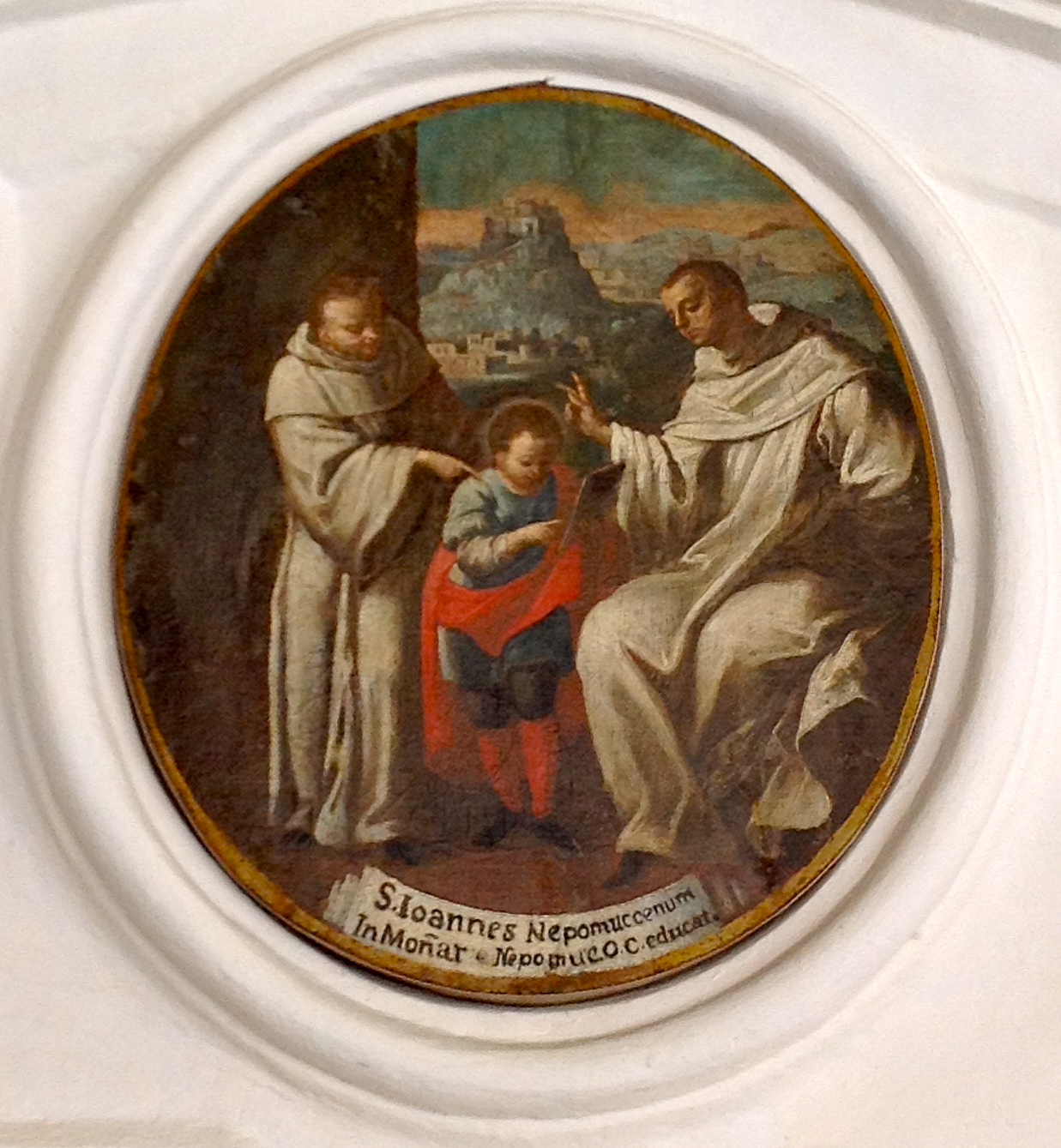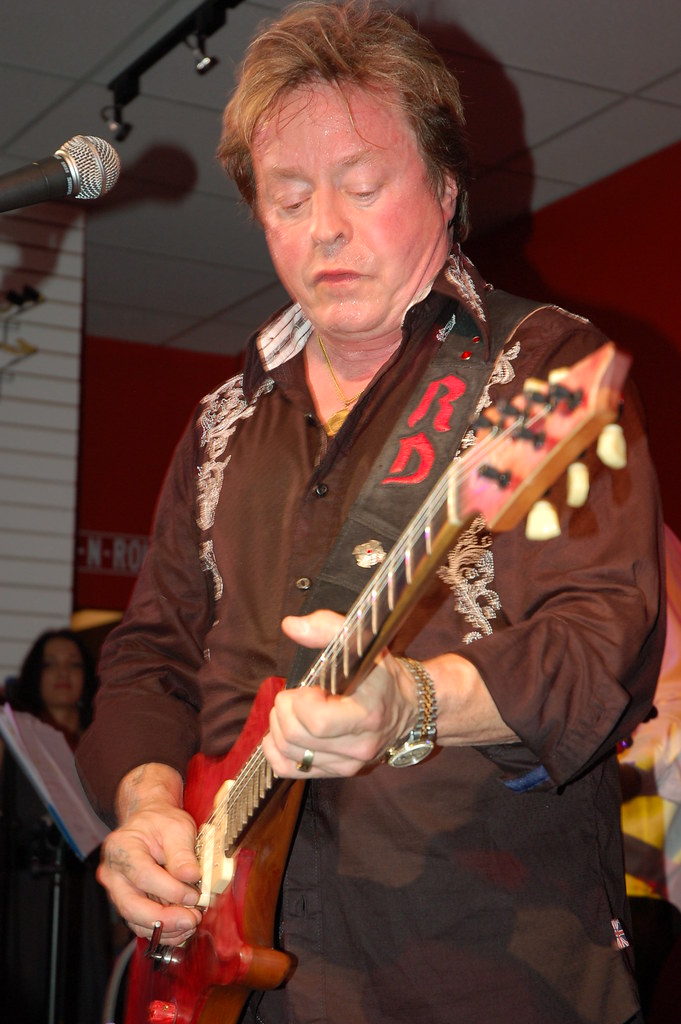
The landscape of American rock music has been profoundly altered by the recent passing of two seminal figures, Rick Derringer and Randy Meisner, both at the age of 77. Their careers, each spanning decades, left an indelible mark on the sonic fabric of popular culture, from chart-topping anthems to foundational contributions to genre-defining bands. Their deaths, occurring within a short span, prompt a reflective look at the immense influence these artists wielded and the rich legacies they leave behind.
Rick Derringer, a rock-and-roll legend behind some of the biggest hits of the 1960s, ‘70s, and ‘80s, died on Memorial Day, May 26, 2025, in Ormond Beach, Florida. His caretaker, Tony Wilson, along with his wife Jenda Derringer, confirmed the sad news, stating that he passed away after being taken off life support following a heart-related medical episode. Mr. Wilson further noted that Derringer had undergone a triple bypass two months prior, and though he seemed to recover well, he went into shock over the weekend before his eventual passing at the hospital.
Born Richard Dean Zehringer on August 5, 1947, in Fort Recovery, Ohio, Derringer began his ascent to stardom as a mere teenager. He first rose to fame as the lead singer of The McCoys, a band he formed with his brother Randy. In 1965, The McCoys catapulted to national recognition with their No. 1 hit single “Hang On Sloopy,” a song that famously unseated The Beatles’ “Yesterday” from the top of the Billboard charts. This early success instantly positioned the then-17-year-old Derringer in the national spotlight, marking him as one of the youngest musicians to achieve such a pinnacle in pop music.
“Hang On Sloopy” evolved into much more than a pop hit; it became a theme song for Derringer’s home state of Ohio and a celebrated staple of Ohio State football games, affectionately embraced as a sort of unofficial anthem. Following the dissolution of The McCoys in the late 1960s, Derringer meticulously reinvented himself, transitioning into a highly respected rock guitarist and forging crucial collaborations that would further define his career. He notably joined Johnny Winter and, in 1970, contributed to influential albums such as *Johnny Winter And Live*.
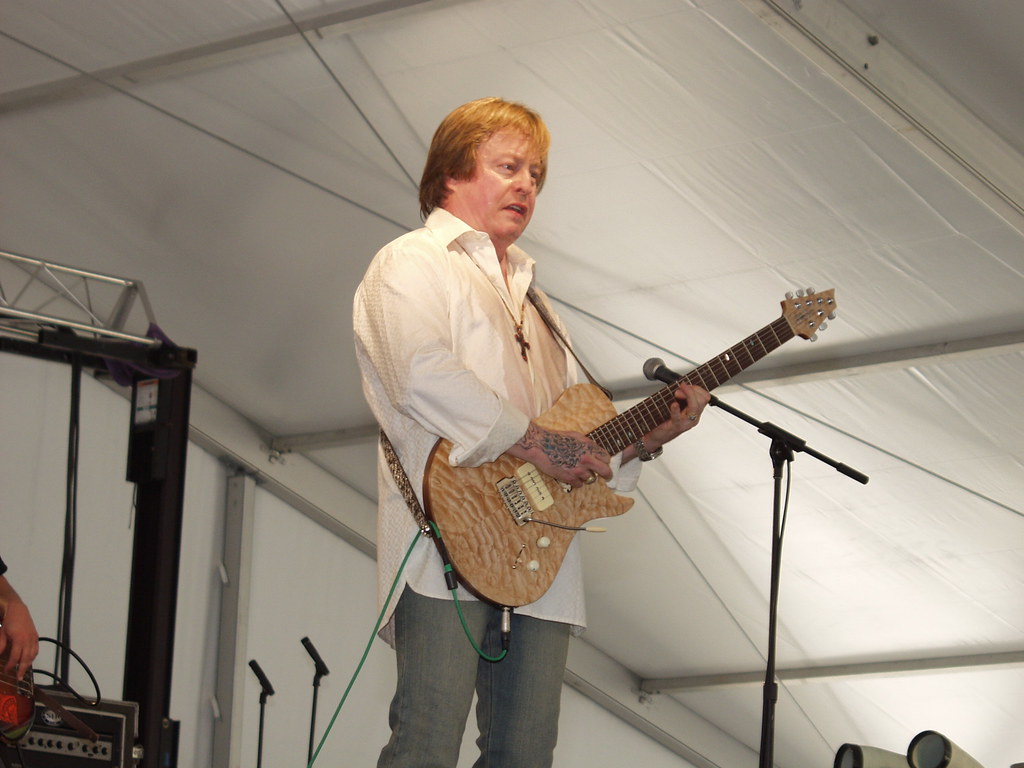
His deep association with the Winter brothers extended to producing and performing on several classic records, including *They Only Come Out at Night* by The Edgar Winter Group. It was with this group that Derringer delivered one of his most memorable guitar solos on the instrumental rock classic “Frankenstein,” which soared to No. 1 on the charts in 1973. This period solidified his credibility within both the blues and rock communities, showcasing his dynamic musicianship and earning him widespread acclaim.
In 1973, Derringer launched his solo career with the album *All American Boy*, which featured the enduring anthem “Rock and Roll, Hoochie Koo.” Though originally recorded with Johnny Winter, Derringer’s solo rendition became a definitive 1970s rock staple and is widely regarded as his signature song. The track powerfully showcased his searing guitar work and distinctive vocal prowess, firmly establishing his position among the era’s preeminent rock guitarists and performers.
Throughout the 1970s, Derringer toured extensively and released a series of solo albums, including *Spring Fever* (1975), *Guitars and Women* (1979), and *Face to Face* (1980). Beyond his individual projects, he cultivated a formidable reputation as a producer and session guitarist. His extensive discography includes collaborations with a remarkably diverse array of artists, such as Steely Dan, Barbra Streisand, Todd Rundgren, Patti Smith, KISS, Meat Loaf, Air Supply, Bonnie Tyler (contributing guitar work to “Total Eclipse of the Heart”), and Cyndi Lauper (performing and touring with her on songs including “True Colors”).
His versatility extended into the realm of professional wrestling in the 1980s, where he composed and performed “Real American,” the iconic entrance theme for WWF wrestling superstar Hulk Hogan. This song became a significant cultural touchstone of the era, remaining popular today and notably used as a theme by various politicians, including former President Barack Obama, former Secretary of State Hillary Clinton, and President Donald Trump. Derringer’s wide-ranging credits also encompassed producing the World Wrestling Federation’s *The Wrestling Album*, which largely featured wrestlers’ theme songs he co-wrote.

Furthermore, Derringer’s influence reached the comedy music world, as he produced “Weird Al” Yankovic’s first six albums, including the Grammy-winning hit “Eat It,” on which Derringer famously played the guitar solo. “Weird Al” Yankovic himself expressed his profound sadness, stating, “I’m very sad to say that my friend, rock guitar legend Rick Derringer, has passed. Rick produced my first 6 albums and played guitar on my earliest recordings, including the solo on ‘Eat It.’ He had an enormous impact on my life, and will be missed greatly. RIP.” In his later years, Derringer continued to tour with notable figures such as Ringo Starr’s All Starr Band and Peter Frampton, further cementing his reputation as a dynamic live performer.
In a deeply personal evolution during the late 1990s, Derringer shifted his musical focus toward Christian music after undergoing a spiritual transformation. He released several faith-based albums with his family, blending blues, rock, and gospel in a way that reflected his personal journey and enduring passion for music. These later works, including *Aiming 4 Heaven* (2001) and *Knighted by the Blues* (2009), showcased his continued artistic versatility and willingness to explore new thematic territories.
Rick Derringer often reflected on his extraordinary career and the nature of fame. In an interview with Living Legends Music, he candidly revealed that he never envisioned achieving stardom, pursuing music purely out of passion. “We were just kids from the Midwest, and our folks told us, ‘You better get a job because you’re not going to be able to make any money in the music business.’ So, I was enrolled in an art school. I had no visions of becoming famous. We did this because it was fun. We never thought anything was going to come of it,” he explained. He later admitted to becoming “a pretty obnoxious, egocentric, selfish guy for a while” when fame initially consumed him.

However, his perspective matured over time. “As time went on, I started realizing that I’m no different than anybody else. As a matter of fact, when you get older, you start to realize it doesn’t matter how many records you sell,” he articulated. He added, “You start to realize it’s all kind of meaningless. You’d better have something to build your life on, some kind of substance. That’s when I really became a stronger Christian.” Derringer is survived by his wife, Jenda Derringer, and one child from a previous marriage to Diane Derringer, leaving behind a profound musical and personal legacy that spanned over six decades.
Concurrently, the world of rock also mourned Randy Meisner, the co-founding bassist, vocalist, and integral part of the Eagles, who died at age 77. The band confirmed his passing in a statement, noting that he died in Los Angeles on July 26, due to complications from chronic obstructive pulmonary disease (COPD), a condition characterized by airflow blockage and breathing difficulties. His death marked the close of a life rich with musical innovation and personal complexity, leaving a void in the hearts of fans and former bandmates alike.
Born on March 8, 1946, in Scottsbluff, Nebraska, Randy Meisner hailed from humble beginnings, as the son of sharecroppers and the grandson of a classical violinist. His musical journey began early, playing in local bands as a teenager. By the late 1960s, he had made his way to California, where he quickly became a pivotal figure in the burgeoning country-rock scene. He was the original bass player and vocalist for Rick Nelson’s Stone Canyon Band before becoming a driving force in the pioneering country-rock group Poco, where he was at the forefront of the musical revolution unfolding in Los Angeles.
In 1971, Meisner, alongside Glenn Frey, Don Henley, and Bernie Leadon, formed the Eagles, a band that would go on to define an era of American rock. He contributed significantly to the band’s foundational albums, including *Eagles*, *Desperado*, *On The Border*, *One of These Nights*, and the seminal *Hotel California*. His indispensable role in the band’s early triumphs was formally recognized with his induction into the Rock and Roll Hall of Fame in 1998, as a member of the Eagles.
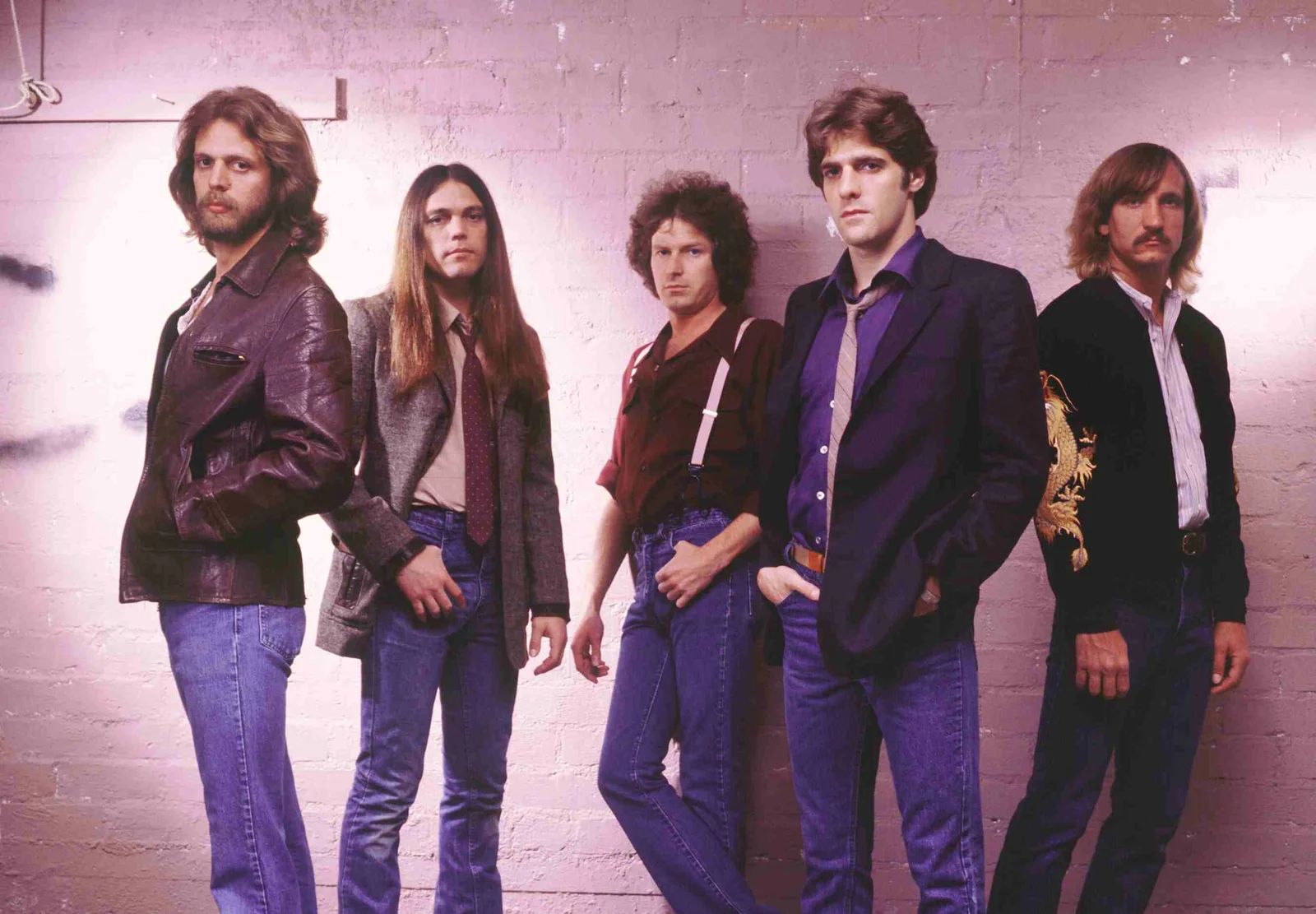
The Eagles’ official statement powerfully underscored his impact: “Randy was an integral part of the Eagles and instrumental in the early success of the band. His vocal range was astonishing, as is evident on his signature ballad, ‘Take It to the Limit.’” Indeed, Meisner’s distinctive falsetto voice on “Take It to the Limit” became a hallmark of the band, making it their longest-charting hit and serving as a defining characteristic not only of the Eagles’ sound but also of the broader “California sound” that emerged during that period. His contributions went beyond bass lines, adding a crucial vocal dimension to the group’s harmonies.
Despite his profound musical success, Meisner was known to be a shy Nebraskan, frequently torn between the demands of fame and the comforts of family life. During the rigorous *Hotel California* tour, he battled illness and homesickness, compounded by the strain of his first marriage dissolving. His reluctance to embrace the spotlight, particularly for “Take It to the Limit,” a song that showcased his nasally tenor, ultimately led to a pivotal confrontation. An argument with Glenn Frey backstage during a concert in Knoxville, Tennessee, in the summer of 1977, precipitated his departure from the band shortly thereafter, with Timothy B. Schmit taking his place.
Following his exit from the Eagles in 1977, Meisner embarked on a solo career, although it did not achieve the commercial heights of his former band. He released his self-titled debut in 1978, followed by *One More Song* in 1980, and another eponymous full-length album in 1982. During this period, he garnered solo hits with “Hearts On Fire” and “Deep Inside My Heart.” In 2001, he collaborated with Billy Swan and Charlie Rich Jr. on the album *Meisner, Swan & Rich*, further demonstrating his enduring commitment to music. He also played on records by artists such as James Taylor and Dan Fogelberg.
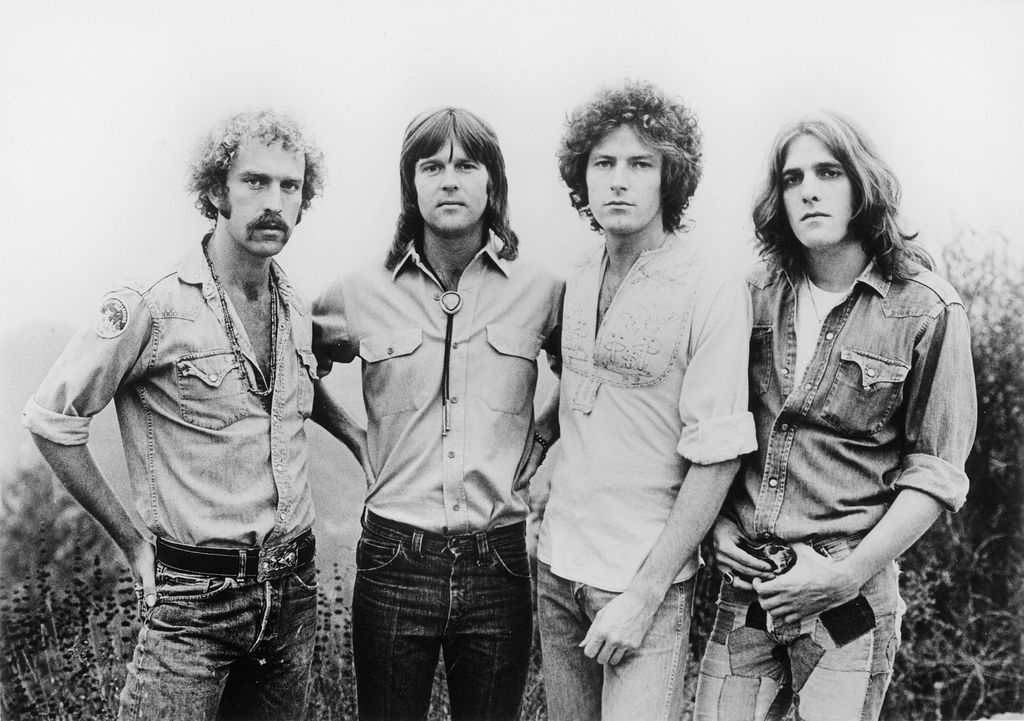
Meisner did reunite with the Eagles for a one-off appearance during their 1998 Rock and Roll Hall of Fame induction, performing “Take It Easy” and “Hotel California” alongside his former bandmates. However, subsequent health issues prevented his participation in the *History of the Eagles* tour, a documentary and concert series celebrating the group’s journey. For a decade, he was also part of World Classic Rockers, a touring act that at various times featured other rock luminaries like Donovan, Spencer Davis, and Denny Laine, further showcasing his continued presence in the music scene.
Randy Meisner’s personal life was marked by significant challenges in his later years. He had been diagnosed with bipolar disorder and struggled with severe issues relating to alcohol, as documented in court records and comments made during a 2015 hearing where a judge ordered him to receive constant medical care. A profound personal tragedy struck in 2016 when his wife, Lana Rae Meisner, accidentally shot herself and died. Married twice, the first time as a teenager, he is survived by his three children. His life, both triumphant and arduous, reflected the intricate interplay of artistry, personal struggle, and enduring impact.
In the aftermath of these profound losses, the music industry and fans alike have extended an outpouring of support and sympathy, celebrating the lives and indelible contributions of both Rick Derringer and Randy Meisner. Social media platforms have been inundated with heartfelt messages, memories, and anecdotes, underscoring the deep affection and respect their groundbreaking work commanded. These tributes serve as a testament to the profound impact they had on countless lives, both through their direct musical output and the inspiration they provided to successive generations of artists.
The passing of these two American rock legends, both at the age of 77, marks the close of significant chapters in the history of rock and roll. While their paths diverged and their musical styles varied, both Derringer and Meisner shared an undeniable talent for crafting enduring soundscapes and contributing to the anthems that defined an era. Their compositions, from the raw energy of “Hang On Sloopy” and “Rock and Roll, Hoochie Koo” to the soaring harmonies of “Take It to the Limit,” will continue to resonate, reminding listeners of their immense artistic gifts.

Their legacies are not merely confined to discographies or chart positions; they are woven into the very fabric of American music. As we bid farewell to these iconic maestros, their music continues to reverberate through the ages, a poignant reminder of their indomitable spirits and the profound impact they had on countless lives. Their stories serve as enduring testaments to the power of creativity, perseverance, and the timeless magic that only true rock and roll legends can conjure, ensuring that their names remain synonymous with innovation, passion, and the very essence of American rock.

